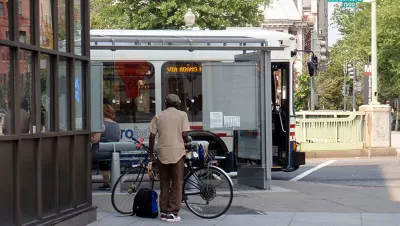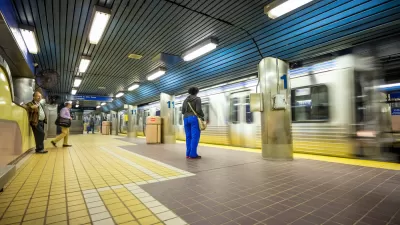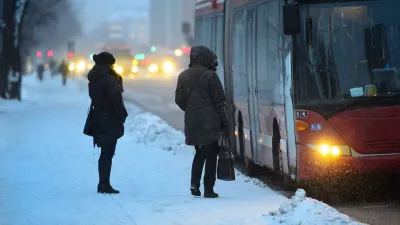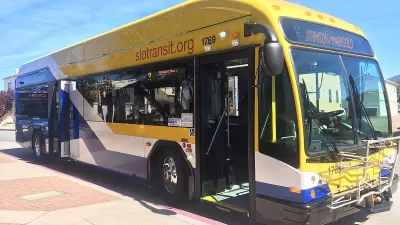Fare-free transit isn’t the climate change benefit that many have hoped, according to recent writing by David Zipper for Bloomberg.

Grandiose claims about the benefits of free transit for emissions reductions are “shaky at best,” according to an article by David Zipper published by Bloomberg in April.
“After more than a decade of transit agencies around the world experimenting with free trips, it’s far from clear that dropping fares delivers an environmental upside,” writes Zipper.
Numerous cities in the United States have experimented with fare-free transit since the outset of the Covid-19 pandemic. The Orange County Transportation Authority (in California), San Diego County, the Utah Transit Authority, the state of Colorado, Cincinnati Metro, and the city of Boston have considered or implemented free fare programs just since the beginning of 2022.
The problem, writes Zipper, is that despite the popularity of fare-free transit, these programs aren’t reducing driving substantially enough to reduce emissions. Data from some fare-free transit programs “suggests that making travel free enticed those who, due to limited income, would have otherwise walked, rode a bike or foregone the trip entirely,” according to Zipper.
More data on fare-free transit programs from around the world can be found in the source article below.
FULL STORY: Free Public Transit Is Not a Climate Policy

Alabama: Trump Terminates Settlements for Black Communities Harmed By Raw Sewage
Trump deemed the landmark civil rights agreement “illegal DEI and environmental justice policy.”

Planetizen Federal Action Tracker
A weekly monitor of how Trump’s orders and actions are impacting planners and planning in America.

Why Should We Subsidize Public Transportation?
Many public transit agencies face financial stress due to rising costs, declining fare revenue, and declining subsidies. Transit advocates must provide a strong business case for increasing public transit funding.

Understanding Road Diets
An explainer from Momentum highlights the advantages of reducing vehicle lanes in favor of more bike, transit, and pedestrian infrastructure.

New California Law Regulates Warehouse Pollution
A new law tightens building and emissions regulations for large distribution warehouses to mitigate air pollution and traffic in surrounding communities.

Phoenix Announces Opening Date for Light Rail Extension
The South Central extension will connect South Phoenix to downtown and other major hubs starting on June 7.
Urban Design for Planners 1: Software Tools
This six-course series explores essential urban design concepts using open source software and equips planners with the tools they need to participate fully in the urban design process.
Planning for Universal Design
Learn the tools for implementing Universal Design in planning regulations.
Caltrans
Smith Gee Studio
Institute for Housing and Urban Development Studies (IHS)
City of Grandview
Harvard GSD Executive Education
Toledo-Lucas County Plan Commissions
Salt Lake City
NYU Wagner Graduate School of Public Service





























